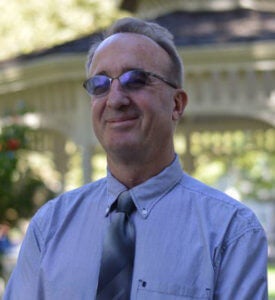Premutation Conference Brings Together World’s Leading Experts
Rotterdam, The Netherlands, was the site of this year’s biennial Fourth International Conference of FMR1 Premutation: Basic Mechanisms, Clinical Involvement and Therapy. Long-time Fragile X researcher Rob Willemsen was the organizer along with his colleague Renata Hukema. Over the three-day event, both laboratory and clinical science research were described, discussed and, at times, vigorously debated. As noted by the organizers, “This conference has become a major interdisciplinary meeting for clinicians, basic scientists and students working in the fields of fragile X-associated tremor/ataxia syndrome (FXTAS), fragile X-associated primary ovarian insufficiency (FXPOI), and other associated clinical phenotypes of the FMR1 premutation.” The conference was supported, in part, by the NFXF.
While this conference summary will not attempt to delve into the very technical aspects of the scientific presentations, the NFXF will alert the community to related articles by the presenters as they are published and, when needed, provide family and patient-friendly overviews. *
As might be expected, FXTAS was the subject of many presentations and FXPOI was also included in a number of discussions. However, new to this conference was much discussion about FXAND (Fragile X-associated Neuropsychiatric Disorders), a designation recently coined by Dr. Randi Hagerman. Keynote presenter, Marsha Mailick, PhD, provided a data-heavy, population-based description of her work in Wisconsin; work which provided much credence to Dr. Hagerman’s thoughts, though Dr. Mailick was quick to emphasize that her results are an indication that much more research needs to be done to confirm and clarify that some carriers of the premutation may be subject to medical and mental health problems unrelated to FXTAS and FXPOI. Read our summary of Dr. Mailick’s work here.
Conference topics included presentations on diagnosis and screening plus efforts to develop therapeutic interventions. (Though no breakthrough treatments were described.) Nonetheless, many clinical presenters mentioned the importance of healthy lifestyle as a protective measure including an emphasis on not smoking. Other conference presentations focused on improving our understanding of the molecular systems involved in the premutation through studying cellular and animal models.
In addition to the numerous presentations, and a poster session featuring many established and up-and-coming researchers, Robert Miller of the NFXF and Dr. David Hessl of the UC Davis MIND Institute, led a discussion on the benefits of establishing a premutation patient registry that would allow researchers to more easily find premutation carriers who are interested in participating in research even when they have no premutation-related problems.
The final day of the event included parents from the European Fragile X Network (EFXN) and a session facilitated by parent and head of the EFXN, Jörg Richstein. This session provided an important opportunity for researchers to hear from and interact with those most acutely impacted by their research.
Those wishing to see the list of speakers, their topics and abstracts should visit http://www.fmr1premutation.com/.
* Following the conference, there was a call for articles from the presenters along with a note that all articles accepted for publication, following peer review, would be published in Open Access in Frontiers in Molecular Biosciences and indexed in PubMed, Scopus, and Web of Science sometime in the second half of 2020.
About the Author

Robert M. Miller has worked with families of special needs children, along with the professionals who support them for the past four decades. From 1999 through 2013, he served as executive director of the National Fragile X Foundation and is currently the Foundation’s Director of Clinic and International Relations. In 2014, Robby launched a human service consulting business, whose clients range from a university medical center to a number of rare disorder parent support organizations, all focused on improving outreach and services to families and better engagement with clinicians and researchers. Robby has also given multiple presentations and assisted with the development of parent support organizations throughout the world.

